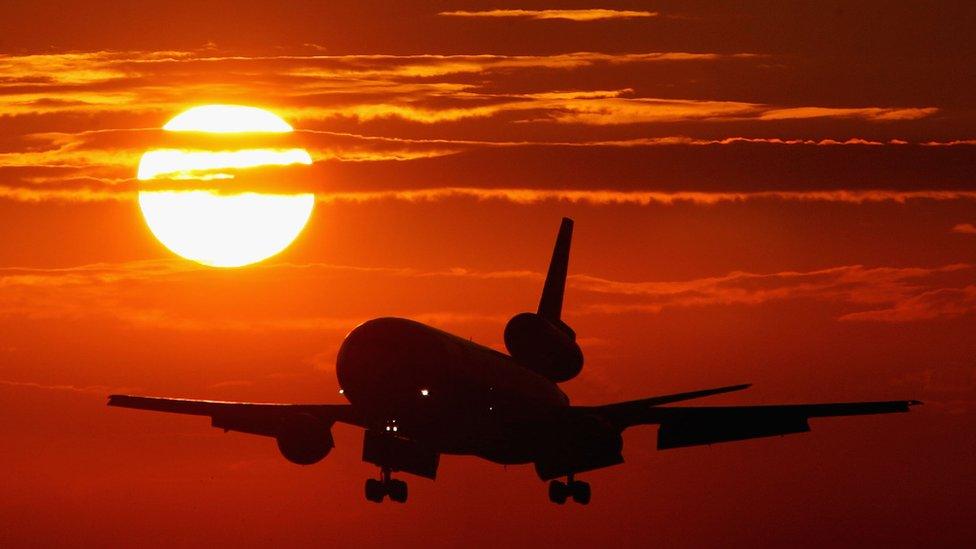Russia Saratov crash: Ice on sensors 'may be cause'
- Published
Hundreds of people are involved in the search operation
Speed sensors that were iced over may have caused a passenger jet to crash near Moscow, killing all 71 people on board, investigators say.
The faulty instruments could have given the pilots wrong speed data, Russia's Interstate Aviation Committee said.
The Saratov Airlines jet went down minutes after take-off from Moscow's Domodedovo airport on Sunday.
More than 1,400 body parts and hundreds of plane fragments have been recovered from the crash site.
What are the investigators saying?
A preliminary analysis of the on-board flight recorder indicated the plane had problems two-and-a-half minutes after it took off, at an altitude of around 1,300m (4,265ft).
The instruments began displaying different speed readings, probably because of iced speed sensors while their heating systems were shut off, the committee said.
When the crew detected the issue, they switched off the plane's autopilot. They eventually took the plane into a dive at 30-35 degrees.
Russian media reports said the plane's captain had rejected a de-icing treatment on the plane before take-off. The procedure is optional and the crew's decision is based mainly on the weather conditions.
Iced-over speed sensors, known as Pitots, were cited as the likely reason for a 2009 Air France plane crash, which killed 228 people.
What about the search operation?
More than 700 people are involved in the search operation, struggling through deep snow.
The emergencies ministry is collecting DNA samples from victims' relatives as part of the identification process of the 65 passengers, including a child and two teenagers, and six crew.
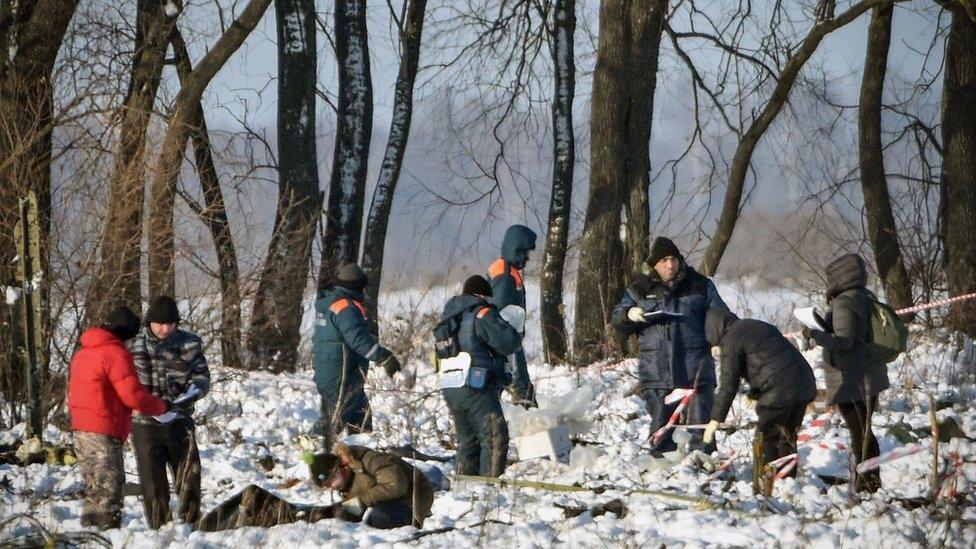
Faulty instruments may have caused the crash, investigators say
Wreckage and body parts are strewn over a large area - about 30 hectares (74 acres) - near the village of Argunovo, about 80km (50 miles) south-east of Moscow.
What else do we know?
The Antonov An-148 was en route to Orsk in the Ural mountains and lost contact at 14:27 (11:27 GMT), without sending any emergency call.
Russia's Investigative Committee said the plane was intact when it crashed and that an explosion happened on impact.
Flight-tracking site Flightradar24 said it descended at the rate of 1,000m (3,300ft) per minute.
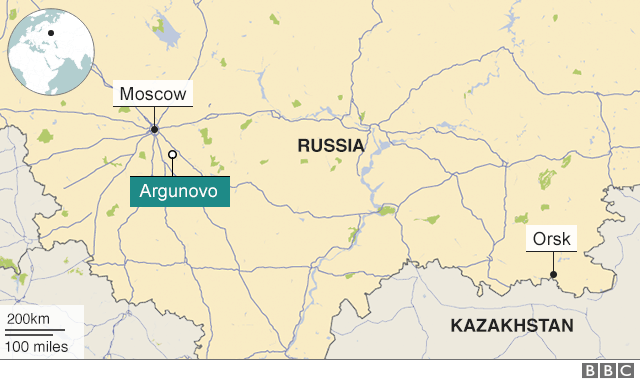
The jet, which was reportedly seven years old, was being flown by an experienced pilot who had 5,000 hours of flying time.
A criminal inquiry has been launched.
What do we know about Saratov Airlines?
In 2015 the regional airline was banned from operating international flights, after inspectors found someone other than the flight crew in a cockpit.
The airline appealed and changed its policy before resuming international charter flights in 2016.
Antonov aircraft were first developed in Ukraine, but are also made in Russia. The twin-engine model involved in Sunday's crash had its first flight in 2004.
In 2011, one broke up mid-flight during a training flight in the Belgorod region in southern Russia, killing all six crew members on board.
Recent Russian air disasters
The country has suffered two major plane crashes since 2015:
A Tu-154 military airliner crashed into the Black Sea with the loss of all 92 people aboard on 25 December 2016, with the disaster blamed on pilot error
A Russian Airbus A321 carrying tourists crashed in Sinai, Egypt, with the loss of all 224 people aboard on 31 October 2015; the Islamic State group said it had placed a bomb aboard.
- Published12 February 2018
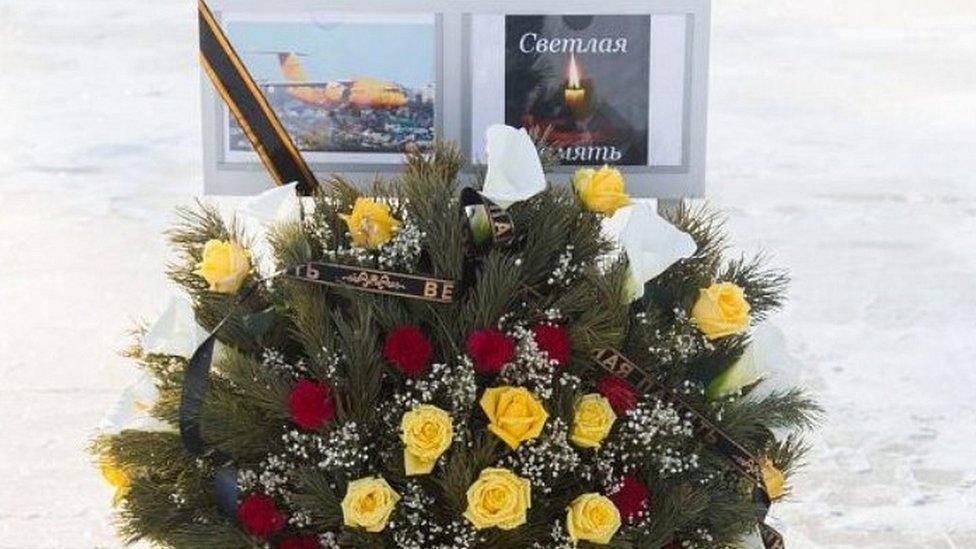
- Published11 February 2018
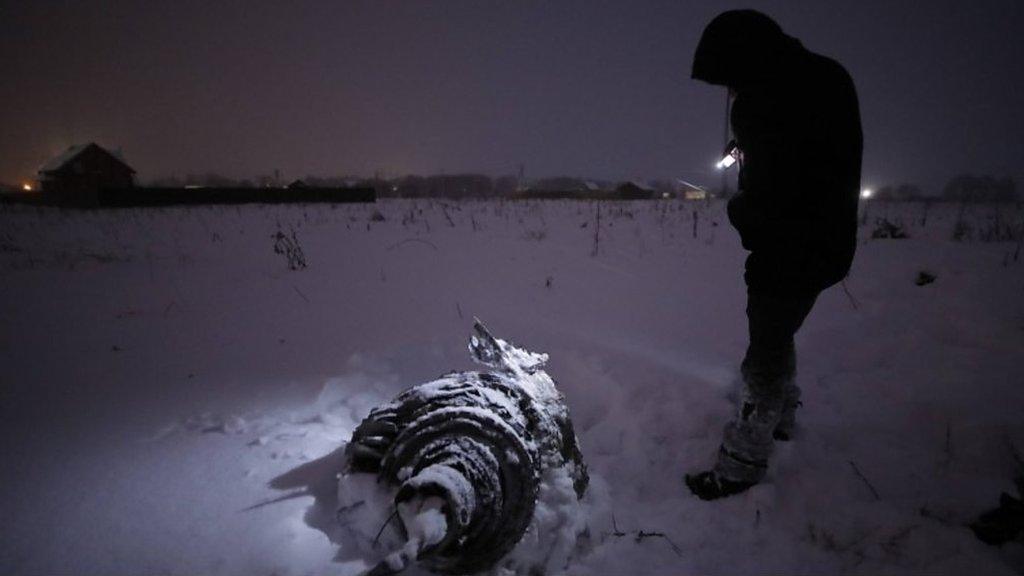
- Published21 March 2022
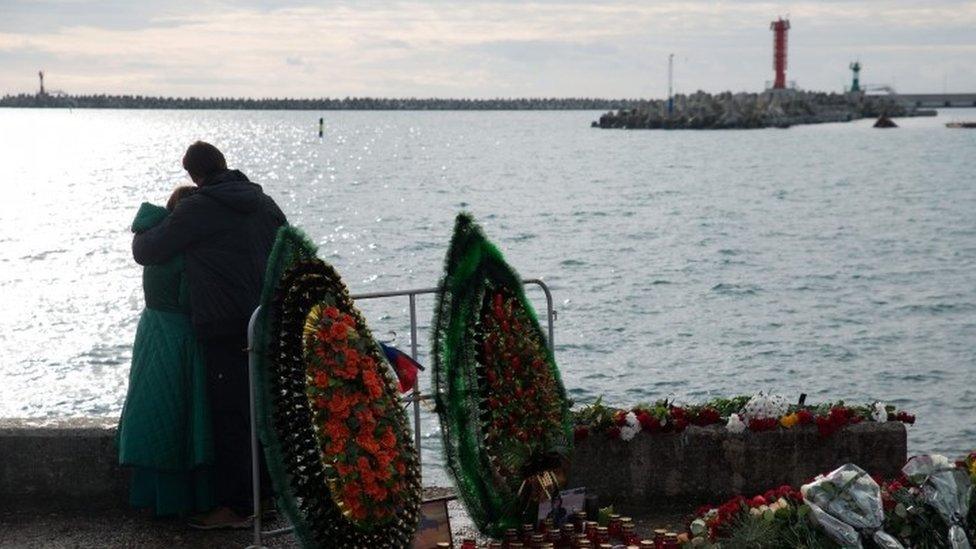
- Published2 January 2018
